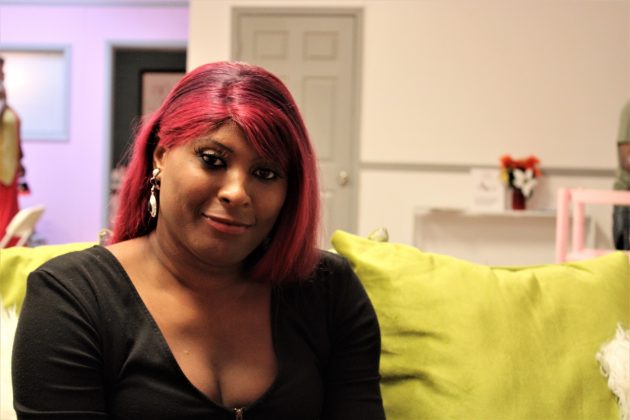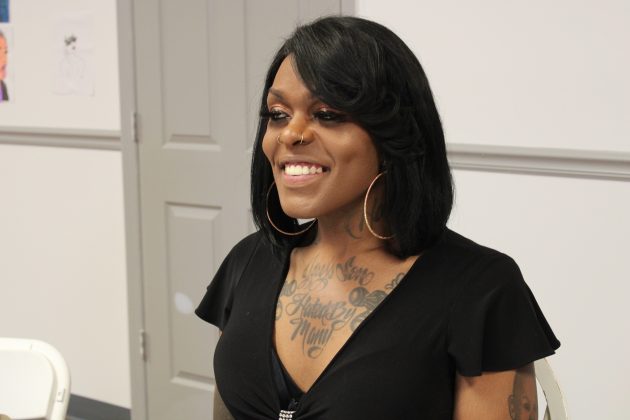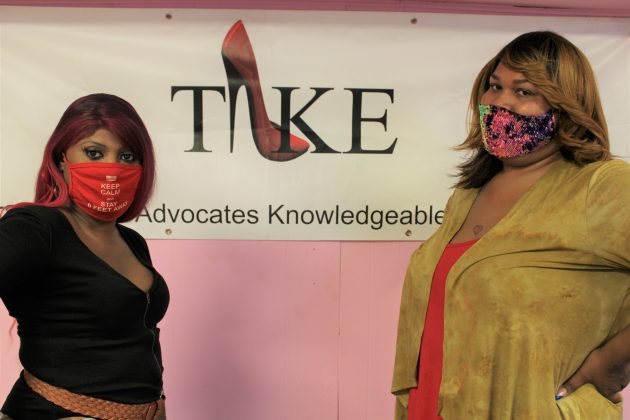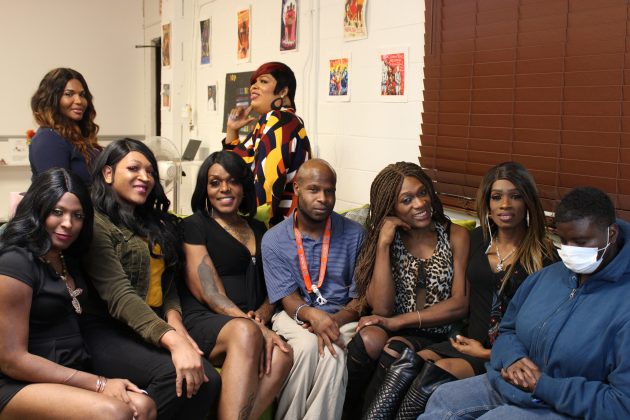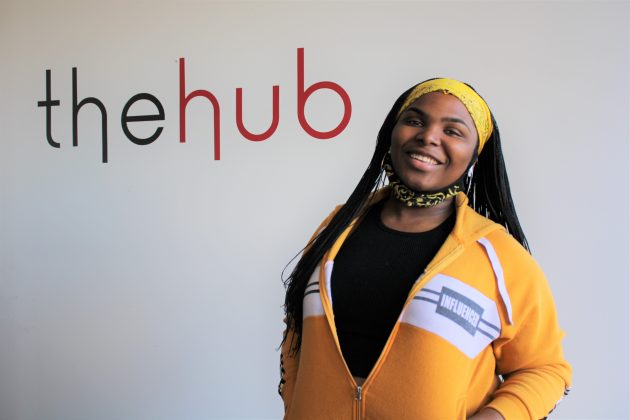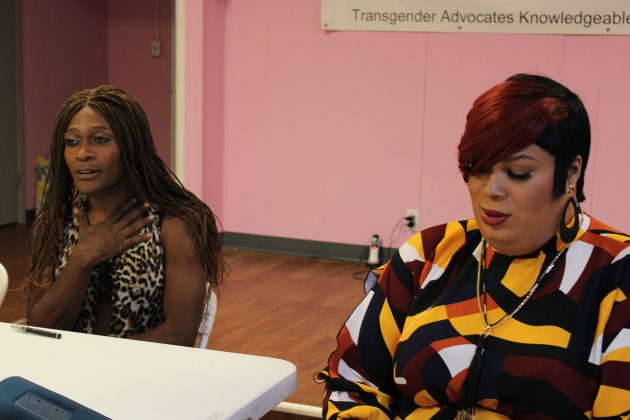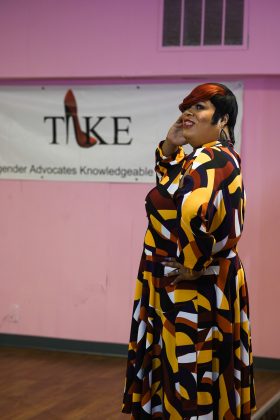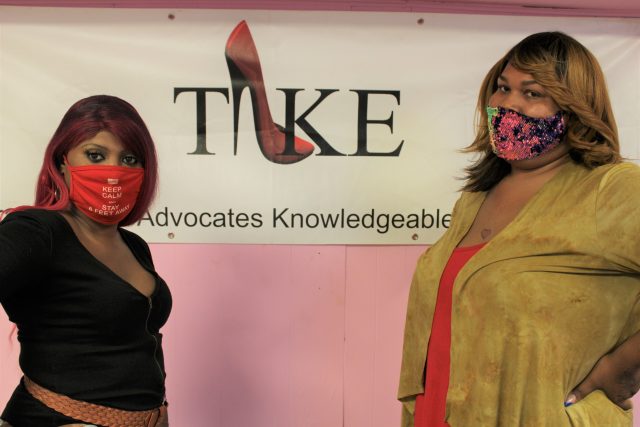
By Sydney Melson
The Birmingham Times
Being Black and transgender in Birmingham means Karina Harris has to face certain “backlashes,” she said.
When it comes to acceptance, “people are still closed-minded,” Harris said, noting that even her family initially did not accept her for who she is.
“Things got better, and everything is great now. But it was a struggle for a while.”
Having her family’s approval is good, but there is still discrimination in society, which Harris hopes to tackle with her work at The Hub, a Birmingham-based resource program for lesbian, gay, bisexual, transgender and questioning and/or queer (LGBTQ) youth of color.
Harris, a trans woman of color (TWOC), said she’s prepared to educate the closed-minded: “Hopefully, in the near future, there won’t be such a difficult time in handling that.”
People are beginning to open up, but the Birmingham community can be better allies to people who are transgender. “We can’t do it alone,” she said.
Harris learned about The Hub while attending Wenonah High School; at that time, the facility was known as the Elite Center.
“I met up with a friend of mine, and we were discussing plans. He told me he was going to the Elite Center, which was a drop-in resource center for the LGBTQ community,” she said. “I was like, ‘OK, cool. I’ll go down there to see what’s going on.’”
Harris, who is 25 and grew up in West End, said she loved the laid-back atmosphere at The Hub, where people in the LGBTQ community help each other.
“After that day, there was not a day that went by when I wasn’t down there just to hang out. Eventually, I started volunteering,” she said.
In 2019, Tony Christon-Walker, director for The HUB, approached Harris with a job offer.
“He would always see me there, and he came around one day and said, ‘I have a job for you.’ I was like, ‘Are you serious?’” she laughed. “He was like, ‘Yeah, just go apply. I’m sure you’ll get it. And, boom, I got it.”
In her current role, Harris focuses on the transgender community.
“I’m trying to reach out and bridge the gap between the LGBTQ community and the transgender community,” she said, explaining that there’s distance between the two, and she does her best to bring them together by raising awareness and building a sense of love and respect.
Kristy “Lovely” Robinson moved to Birmingham from Mobile, Alabama, where she grew up, in the beginning of 2015—and that’s when she learned about Transgender Advocates Knowledgable and Empowering (TAKE) through a social worker, who introduced her to TAKE Director Daroneshia Duncan-Boyd.
“In Mobile, they didn’t have a trans center,” Robinson said. “I came here to gain more knowledge about my community.”
Robinson, 37, who currently serves as vice president on the TAKE board of directors, said the group has been indispensable in helping her learn how to survive as a Black woman. Robinson said she feels respected among her peers, and TAKE helped to build that foundation.
“TAKE helped me learn how to speak up for myself and know my rights,” she said.
TAKE provides a sense of closeness and community that Robinson didn’t get from her family.
“[My dad] told me he’d accept me for who I am when I’m in Birmingham, but not in Mobile,” she said. “I need people to understand that I am a Black woman, that we are Black women. We face struggles with domestic violence and discrimination, there is no difference.”
Robinson encouraged people in Birmingham to reach out and support TWOC, as well as learn more about the TAKE center: “Team up with us, and help protect us,” she said.
Violence against Black trans people is a growing problem in the United States. The National Center for Transgender Equality describes the violence as an “epidemic.” In 2016, when the group surveyed roughly 28,000 transgender people, 47 percent of Black respondents reported being discriminated against, verbally harassed, or physically assaulted. In addition, TWOC were more likely to be physically attacked, the study reported. The Human Rights Campaign states that 29 transgender people were killed this year, 20 of whom were TWOC.
People across the nation, as well as in Birmingham, need to understand the struggles faced by TWOC.
“They just have to be educated to get rid of that stigma [against transgender people] and know that we’re here to stay,” Robinson said.
For more on The Hub, visit bhamhub.com, call 205-703-4199, or email elitehouse77@gmail.com; you can also learn more on Facebook and Instagram at The Hub Birmingham.
For more on TAKE, visit takebhm.org or call 205-848-5849; you can also learn more on Facebook, Instagram, and Twitter at TAKE Resource Center.

